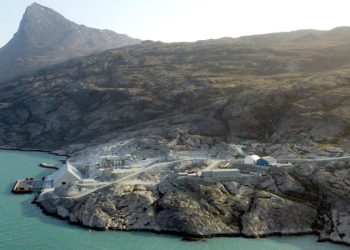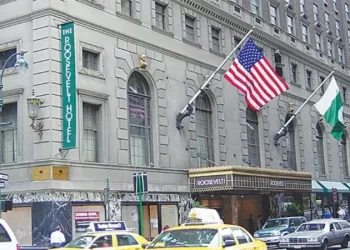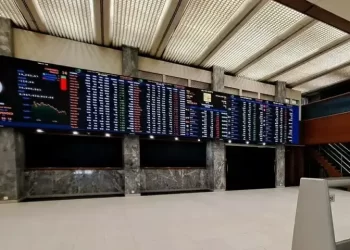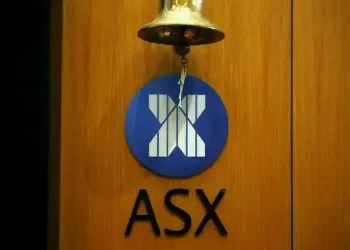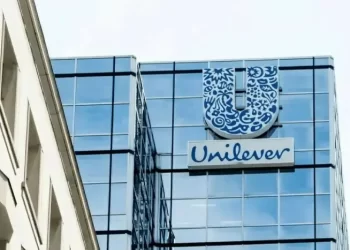DUBAI: Drawing parallels with India’s Bengaluru and Silicon Valley in the US, speakers highlighted Dubai’s rapid transformation that is driving its position as a tech hub in the region as well as the globe.
At an engaging session titled ‘Asia for Global’ at the SuperBridge Summit during GITEX GLOBAL 2024 that concluded last week, business leaders also discussed at length the amalgamation of East Asia with the Gulf region, remarks that highlighted the ongoing evolving landscape of the global economy especially in the tech sector.
“Over the last 30 years, there was a lack of interest in working with each other, now the entire geopolitical and economic landscape is changing,” said Dr Karim Alwadi, co-founder of China’s Beltway Group, as he referred to China and the Gulf region’s growing trading relations.
GITEX GLOBAL: Dubai looks to join league of ‘smart cities’
“East Asia – particularly Japan and China – have a lot of valuable information to share with the Gulf. This is because they are culturally similar, political systems also share traits in that they have strong governments, where a centralised system supports entrepreneurial growth and that helps industries flourish.”
CEO and co-founder of Gulf Capital, an alternative investment company, Dr Karim El Solh said he started his career by looking at the west for new technology. However, he now finds himself looking towards Asia for the latest fintech expertise.
He also spoke about the benefits of sourcing the latest technology for manufacturing and businesses within Asia such as China, which was far more advanced than its American counterparts, and cheaper as well.
At the session, Timothy Chen, General Partner at private equity firm ACHI Capital, also cited how Dubai is undergoing a similar transformation that the United States experienced with Silicon Valley, and India with its tech hub in Bengalaru.
“Silicon Valley was driven by the military, who encouraged the first few tech firms to move there to undertake military contracts,” he told media at the sidelines of the session.
“None of this was organic. It was forced and needed leadership to drive it.”
Indeed, extensive and consistent post-war era government funds, and especially military contracting, overhauled the American technology industry, transforming the region surrounding Mountain View, California into the bustling tech metropolis it is today.
However, Dubai, it seems, is realising this faster.
“None of this was coincidental,” said Chen. “Instead, it was a very contrived and calibrated push for advancement propelled by the government with investments in human capital and infrastructure and above all, a vision for Dubai.”
Speaking about the diverse make-up of people and professionals in Dubai, Chen said he must have come across 12 different nationalities in just a day. “That kind of diversity has to be driven and engineered. UAE has all the elements to make this happen.”
He highlighted how from its humble roots as a fishing village, it has since diversified into gold and oil and now well on its way to becoming a tech hub.
“When I see this, I see the UAE making all these moves, like on a chessboard, I think to myself I cannot imagine where it will be in 10 years.”
The speakers’ remarks resonated at GITEX, especially keeping with the AI- and tech-driven themes of the event.
The next day at GITEX, Dubai Minister of State for Artificial Intelligence Omar bin Sultan Al Olama credited Dubai’s ability to attract the best talent from the world over and the emirate’s vision and leadership as the reason for this success.
Citing how Dubai ruler Sheikh Mohammed bin Rashid Al Maktoum’s vision for Dubai was for it to become a tourism, finance and technology hub, he added how the “software of the city” is Dubai’s talent and diversity.
Meanwhile, during the session, Chen referenced the semiconductor industry and said that with Chinese companies like Huawei and Xiaomi now producing over 50% of the world’s smartphones, the Chinese ecosystem is growing.
However, looking at Dubai’s very calibrated growth, he sees another shift happening, where trade and business are linking to the Gulf region.
“It is also our responsibility (those in the semiconductor industry) to build the bridge from China to the UAE.”
Speaking on the sidelines, a CEO of another company also said he sees more and more companies moving their headquarters to Dubai.
Ayman Itani, CEO of consultancy Think Media Labs that works extensively with the government, said the momentum is with the emirate.
“The government continues to innovate because they have been building additional infrastructure for more than 30 years, from a technology perspective,” he told media.
“With the momentum the emirate is building across multiple industries, it will continues to grow its population, attract a further influx of global talent, while providing a friendly business environment for global companies that want to move their offices here.
“Individuals also want to work in a growing economy, with access to safety and security, healthcare, access to education and long-term growth, and that is what the emirates is providing.”
The Dubai AI minister, in his talk, was also bullish on an inclusive future in the emirate.
“The future is going to be created by driven, passionate people, of all nationalities working alongside the government to realise this vision,” he said. “You will be able to do business here 4,000 years in the future, while being treated equally. That is my vision,” he concluded on a strong note.
DUBAI: Drawing parallels with India’s Bengaluru and Silicon Valley in the US, speakers highlighted Dubai’s rapid transformation that is driving its position as a tech hub in the region as well as the globe.
At an engaging session titled ‘Asia for Global’ at the SuperBridge Summit during GITEX GLOBAL 2024 that concluded last week, business leaders also discussed at length the amalgamation of East Asia with the Gulf region, remarks that highlighted the ongoing evolving landscape of the global economy especially in the tech sector.
“Over the last 30 years, there was a lack of interest in working with each other, now the entire geopolitical and economic landscape is changing,” said Dr Karim Alwadi, co-founder of China’s Beltway Group, as he referred to China and the Gulf region’s growing trading relations.
GITEX GLOBAL: Dubai looks to join league of ‘smart cities’
“East Asia – particularly Japan and China – have a lot of valuable information to share with the Gulf. This is because they are culturally similar, political systems also share traits in that they have strong governments, where a centralised system supports entrepreneurial growth and that helps industries flourish.”
CEO and co-founder of Gulf Capital, an alternative investment company, Dr Karim El Solh said he started his career by looking at the west for new technology. However, he now finds himself looking towards Asia for the latest fintech expertise.
He also spoke about the benefits of sourcing the latest technology for manufacturing and businesses within Asia such as China, which was far more advanced than its American counterparts, and cheaper as well.
At the session, Timothy Chen, General Partner at private equity firm ACHI Capital, also cited how Dubai is undergoing a similar transformation that the United States experienced with Silicon Valley, and India with its tech hub in Bengalaru.
“Silicon Valley was driven by the military, who encouraged the first few tech firms to move there to undertake military contracts,” he told media at the sidelines of the session.
“None of this was organic. It was forced and needed leadership to drive it.”
Indeed, extensive and consistent post-war era government funds, and especially military contracting, overhauled the American technology industry, transforming the region surrounding Mountain View, California into the bustling tech metropolis it is today.
However, Dubai, it seems, is realising this faster.
“None of this was coincidental,” said Chen. “Instead, it was a very contrived and calibrated push for advancement propelled by the government with investments in human capital and infrastructure and above all, a vision for Dubai.”
Speaking about the diverse make-up of people and professionals in Dubai, Chen said he must have come across 12 different nationalities in just a day. “That kind of diversity has to be driven and engineered. UAE has all the elements to make this happen.”
He highlighted how from its humble roots as a fishing village, it has since diversified into gold and oil and now well on its way to becoming a tech hub.
“When I see this, I see the UAE making all these moves, like on a chessboard, I think to myself I cannot imagine where it will be in 10 years.”
The speakers’ remarks resonated at GITEX, especially keeping with the AI- and tech-driven themes of the event.
The next day at GITEX, Dubai Minister of State for Artificial Intelligence Omar bin Sultan Al Olama credited Dubai’s ability to attract the best talent from the world over and the emirate’s vision and leadership as the reason for this success.
Citing how Dubai ruler Sheikh Mohammed bin Rashid Al Maktoum’s vision for Dubai was for it to become a tourism, finance and technology hub, he added how the “software of the city” is Dubai’s talent and diversity.
Meanwhile, during the session, Chen referenced the semiconductor industry and said that with Chinese companies like Huawei and Xiaomi now producing over 50% of the world’s smartphones, the Chinese ecosystem is growing.
However, looking at Dubai’s very calibrated growth, he sees another shift happening, where trade and business are linking to the Gulf region.
“It is also our responsibility (those in the semiconductor industry) to build the bridge from China to the UAE.”
Speaking on the sidelines, a CEO of another company also said he sees more and more companies moving their headquarters to Dubai.
Ayman Itani, CEO of consultancy Think Media Labs that works extensively with the government, said the momentum is with the emirate.
“The government continues to innovate because they have been building additional infrastructure for more than 30 years, from a technology perspective,” he told media.
“With the momentum the emirate is building across multiple industries, it will continues to grow its population, attract a further influx of global talent, while providing a friendly business environment for global companies that want to move their offices here.
“Individuals also want to work in a growing economy, with access to safety and security, healthcare, access to education and long-term growth, and that is what the emirates is providing.”
The Dubai AI minister, in his talk, was also bullish on an inclusive future in the emirate.
“The future is going to be created by driven, passionate people, of all nationalities working alongside the government to realise this vision,” he said. “You will be able to do business here 4,000 years in the future, while being treated equally. That is my vision,” he concluded on a strong note.



